Seasoning herbs are natural plant-based flavor enhancers that add aroma, taste, and health benefits to your dishes. According to culinary experts, mastering these herbs can transform ordinary meals into extraordinary experiences. This guide provides actionable tips on selection, storage, and creative uses for every kitchen.
Top 10 Seasoning Herbs You Need to Know
Here's a curated list of essential seasoning herbs that every kitchen should stock up on, with detailed insights on why each is indispensable:
- Basil: Sweet and peppery, essential for Italian dishes like pasta and pesto. Fresh basil adds vibrant flavor to salads and tomatoes, while dried basil works well in sauces and soups. Known for its anti-inflammatory properties.
- Oregano: Bold and aromatic, a staple in Mediterranean and Mexican cooking. Perfect for pizza, tacos, and tomato-based sauces. Rich in antioxidants that support immune health.
- Thyme: Earthy with a hint of mint, ideal for roasted meats and stews. Contains thymol, which has antimicrobial benefits. Works well fresh or dried in slow-cooked dishes.
- Rosemary: Pine-like fragrance, excellent with lamb, potatoes, and grilled veggies. Known for improving memory and concentration. Best used fresh for grilling or dried for long-cooking recipes.
- Cilantro: Polarizing yet vibrant, adds freshness to salsas and Asian dishes. High in vitamin K and antioxidants. Always use fresh for maximum flavor in cold dishes.
- Parsley: Mild and versatile, often used as a garnish or in tabbouleh. Rich in vitamin C and supports digestion. Best fresh for salads and as a finishing touch.
- Sage: Woody and savory, pairs well with stuffing and pork dishes. Traditionally used to soothe sore throats. Dried sage is ideal for baking and roasting.
- Dill: Fresh and grassy, great with fish and pickling recipes. Contains flavonoids that aid digestion. Always fresh for seafood dishes to preserve delicate flavor.
- Mint: Cooling and refreshing, used in desserts, drinks, and Middle Eastern cuisine. Helps with nausea and digestion. Best fresh for beverages and desserts.
- Tarragon: Anise-like flavor, popular in French sauces and egg dishes. Contains compounds that may reduce inflammation. Use fresh for delicate sauces or dried for longer cooking.
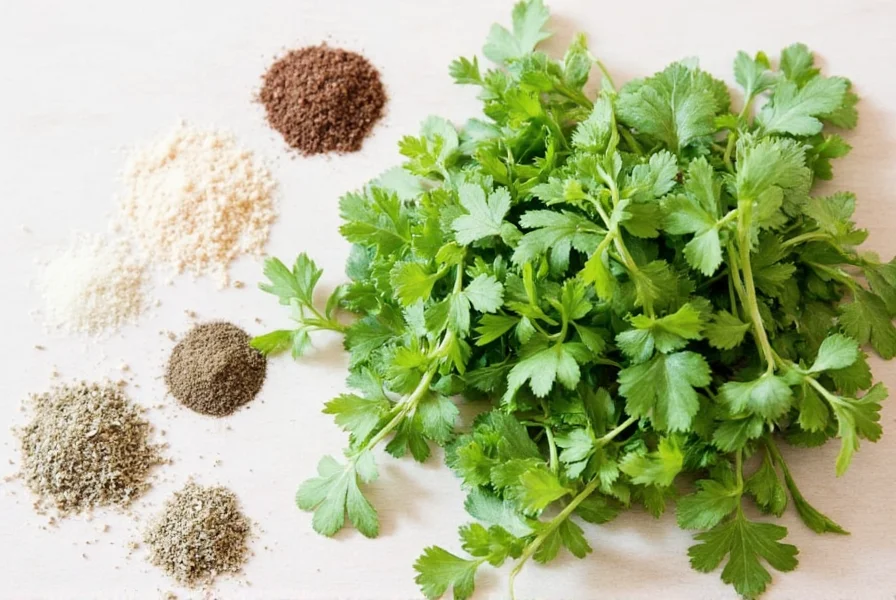
| Herb | Flavor Profile | Best Used In | Fresh or Dried? |
|---|---|---|---|
| Basil | Sweet, peppery | Pasta, Caprese salad, pesto | Fresh |
| Oregano | Earthy, pungent | Pizza, tacos, tomato sauces | Dried |
| Thyme | Woody, minty | Roasts, soups, stews | Both |
| Rosemary | Pine-like, robust | Lamb, potatoes, bread | Both |
| Cilantro | Herbaceous, citrusy | Salsas, curries, salads | Fresh |
Fresh vs Dried: Which One to Choose?
The choice between fresh and dried herbs depends on the dish and cooking method. Culinary experts recommend:
- Fresh Herbs: Better for bright, light flavors. Perfect when added at the end of cooking. Ideal for soft textures like salsa, salads, or cold dishes. For example, fresh basil in Caprese salad preserves its delicate aroma.
- Dried Herbs: More concentrated flavor. Great for slow-cooked dishes like stews or baked goods where longer cooking helps release their oils. Use dried oregano in tomato sauce for deeper flavor penetration.
Pro Tip: When substituting, 1 teaspoon of dried herbs equals 1 tablespoon of fresh. For delicate herbs like basil or cilantro, always use fresh for best results. Dried herbs work better for robust flavors like rosemary or thyme in long-cooking recipes.
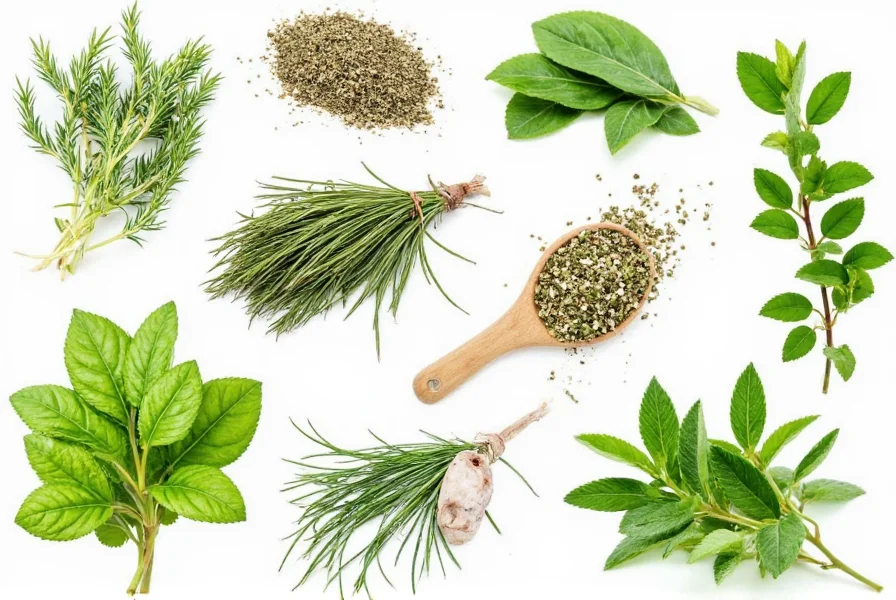
Buying Guide: What to Look For
When selecting seasoning herbs, consider these expert-backed factors:
For Fresh Herbs:
- Appearance: Leaves should be vibrant, firm, and free from browning or wilting. Avoid limp or yellowed stems.
- Smell: A strong, fragrant aroma indicates freshness and potency. Rub a leaf between your fingers to test intensity.
- Source: Locally grown or organic options tend to have better flavor and fewer chemicals. Check for USDA Organic certification when possible.
For Dried Herbs:
- Packaging: Look for tightly sealed containers to preserve flavor. Avoid loose or transparent packaging that exposes herbs to light.
- Expiration Date: Dried herbs lose potency over time; aim for those within 1–2 years of production. Whole herbs last longer than ground versions.
- Brand Reputation: Trusted brands like McCormick, Simply Organic, or Frontier Co-op offer high-quality blends. Look for non-irradiated and ethically sourced options.
Recommended Products
Here are top-rated products that make a great addition to any pantry, based on professional chef recommendations:
- McCormick Culinary Herbs
- Features: Pure, non-irradiated, and consistent flavor. Sourced from trusted farms.
- Use Case: Commercial kitchens and everyday home use for sauces, marinades, and roasts.
- Occasion: Weeknight dinners, meal prep, and baking.
- Simply Organic Basil
- Features: USDA-certified organic, ethically sourced from sustainable farms.
- Use Case: Pesto, fresh pasta, caprese-inspired dishes, and salad dressings.
- Occasion: Weekend brunches, garden-to-table meals, and summer recipes.
- Frontier Co-op Rosemary
- Features: Sustainably harvested, rich aroma, and free from additives.
- Use Case: Roast chicken, focaccia, marinades, and potato dishes.
- Occasion: Holiday roasts, cozy winter meals, and grilled vegetables.
How to Store Herbs Like a Pro
Proper storage ensures that your seasoning herbs remain potent and flavorful for months. Follow these expert techniques:
Storing Fresh Herbs:
- Trim the ends and place in a glass of water like a bouquet. Cover loosely with a plastic bag and refrigerate for up to 2 weeks.
- For delicate herbs like cilantro or parsley, store in airtight containers lined with damp paper towels to maintain moisture.
- Freeze chopped herbs in olive oil ice cube trays for long-term use. Perfect for adding to soups, stews, or sauces without thawing.
Storing Dried Herbs:
- Keep in airtight glass jars away from heat and sunlight. Store in a cool, dark pantry to preserve flavor compounds.
- Label each container with the date of purchase. Whole dried herbs (like bay leaves) last up to 3 years, while ground herbs last 1-2 years.
- Avoid storing near the stove or oven where moisture and heat degrade quality. Never refrigerate dried herbs as condensation causes clumping.
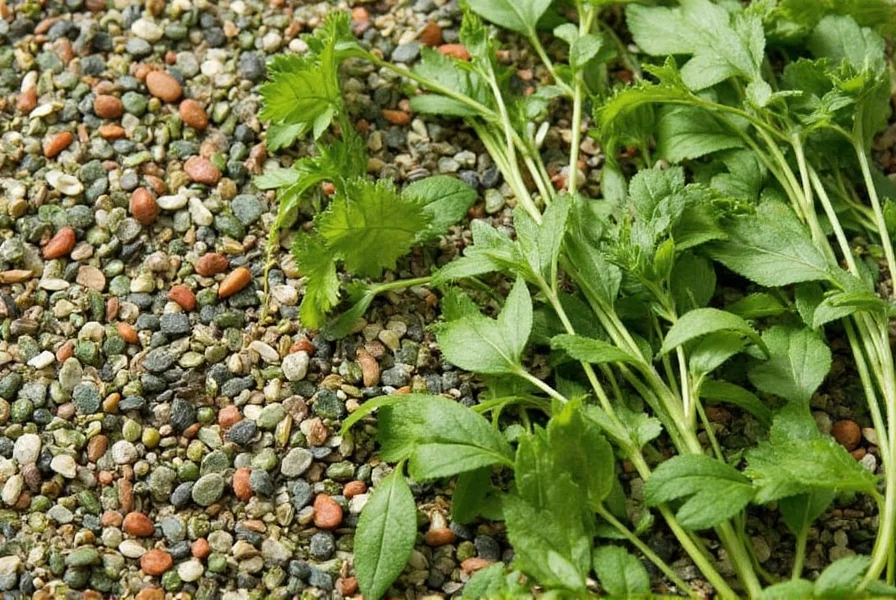
Creative Ways to Use Seasoning Herbs
Think beyond the typical uses and experiment with herbs in new ways to elevate your cooking:
- Infused Oils: Make rosemary or thyme-infused olive oil for dipping bread or drizzling over roasted vegetables. Perfect for Mediterranean-style dishes.
- Compound Butters: Mix softened butter with herbs like tarragon or sage for steak, toast, or mashed potatoes. Adds restaurant-quality flavor in minutes.
- Herb Salt: Blend coarse sea salt with dried herbs like basil or oregano to create a custom seasoning blend for grilling, roasting, or finishing dishes.
- Homemade Vinegars: Steep herbs like basil or dill in white wine vinegar for dressings and marinades. Ideal for salad dressings or fish recipes.
- Cocktail Garnishes: Mint in mojitos, rosemary in gin cocktails, or thyme in whiskey sours. Elevates your drink game with fresh flavors.
- Herb-Infused Honey: Simmer honey with lavender or rosemary for drizzling over yogurt or cheese plates. A unique sweet-and-savory pairing.
Frequently Asked Questions About Seasoning Herbs
What are the most essential seasoning herbs for beginners?
For beginners, the most essential herbs to start with are basil, oregano, thyme, rosemary, and parsley. These versatile herbs cover a wide range of cuisines and dishes. Basil works wonderfully in Italian cooking, oregano is perfect for pizzas and tomato-based dishes, thyme adds depth to soups and stews, rosemary complements roasted meats and potatoes, and parsley serves as both a garnish and flavor component in many dishes.
How do I substitute fresh herbs for dried ones (and vice versa)?
The general rule is that 1 teaspoon of dried herbs equals approximately 1 tablespoon of fresh herbs. Dried herbs are more concentrated because the drying process removes water but leaves the flavor compounds behind. When substituting, add dried herbs earlier in the cooking process to allow time for their flavors to release, while fresh herbs are typically added near the end of cooking to preserve their delicate flavors.
How long do dried herbs last before losing potency?
Dried herbs typically maintain their best flavor for 1-2 years when stored properly in airtight containers away from heat, light, and moisture. After this time, they don't necessarily go bad, but they lose their potency and vibrant flavor. A good test is to rub a small amount between your fingers - if you can't smell a strong aroma, it's time to replace them. Whole dried herbs (like bay leaves) tend to last longer than ground versions.
Which herbs work best with chicken, fish, and beef?
For chicken: thyme, rosemary, sage, and tarragon work beautifully. For fish: dill, parsley, and tarragon are excellent choices. For beef: rosemary, thyme, and oregano complement its rich flavor. Each protein has its ideal herb pairings - chicken loves the subtle earthiness of thyme, fish benefits from the fresh notes of dill, and beef stands up well to robust rosemary. However, don't be afraid to experiment beyond these traditional pairings!
Can I grow my own seasoning herbs indoors?
Yes! Many herbs grow well indoors with proper care. Basil, parsley, mint, chives, and oregano are particularly good candidates for indoor growing. You'll need a sunny windowsill (6+ hours of sunlight) or grow lights, well-draining soil, and containers with drainage holes. Water when the top inch of soil feels dry, and regularly trim your herbs to encourage bushier growth. Indoor herb gardening gives you fresh, ready-to-use herbs year-round.
What's the difference between herbs and spices?
Herbs typically come from the leafy parts of herbaceous (non-woody) plants, while spices come from other parts of the plant like seeds, bark, roots, or fruits. For example, basil and parsley are herbs (leaves), while cinnamon (bark), cumin (seeds), and ginger (root) are spices. Both add flavor to food, but they have different flavor profiles and uses in cooking. Many dishes benefit from a combination of both herbs and spices.
Final Thoughts
Seasoning herbs are more than just pantry staples — they're the heart of flavor in any dish. Whether you prefer the delicate freshness of basil or the bold punch of oregano, knowing how and when to use them makes all the difference. With this guide, you're well on your way to mastering the art of seasoning like a pro.
So go ahead, spice up your life, one herb at a time!
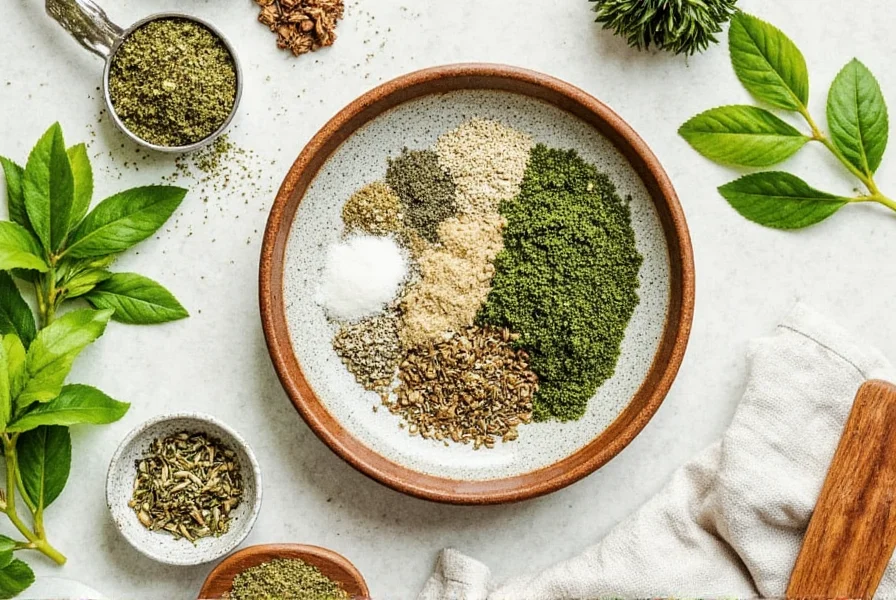

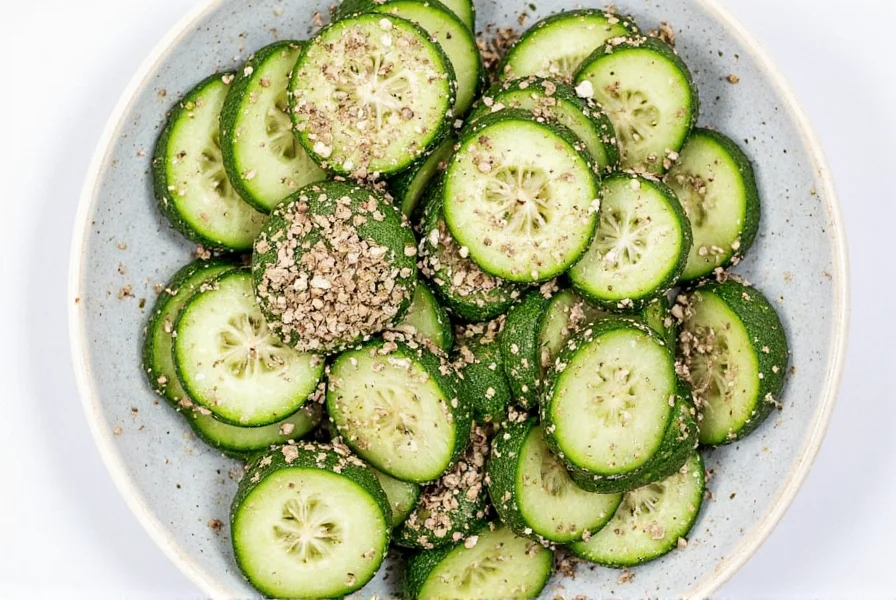









 浙公网安备
33010002000092号
浙公网安备
33010002000092号 浙B2-20120091-4
浙B2-20120091-4